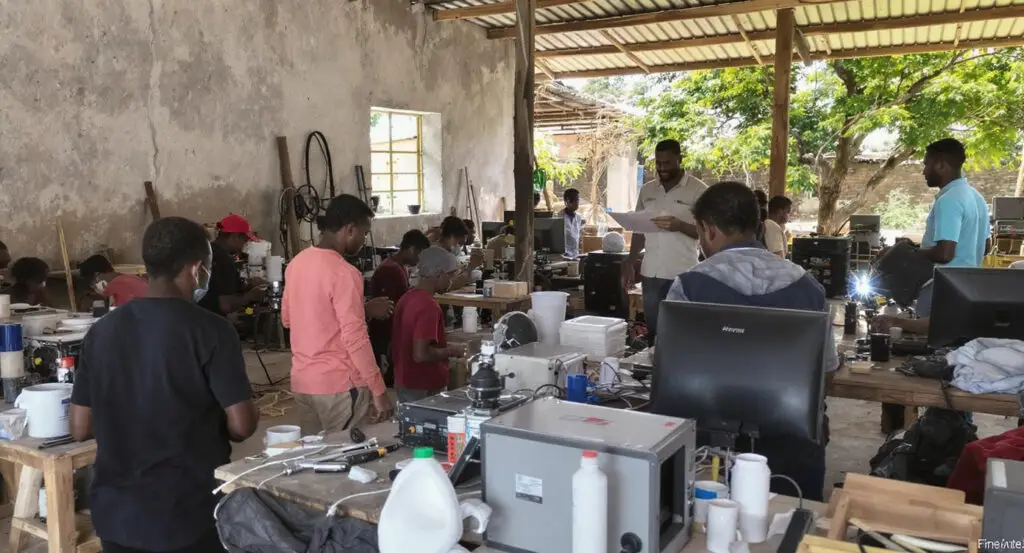The Call for a TESDA Charter Overhaul
The Second Congressional Commission on Education (EDCOM II) has initiated a crucial discussion on the future of technical-vocational education in the Philippines. The commission argues that fully devolving community-based technical-vocational programs to local government units (LGUs) would significantly improve skills development at the grassroots level. This potential for devolution is not a new concept; it is already envisioned under Section 29 of Republic Act 7796, or the TESDA Act of 1994. However, implementation has been sporadic and inconsistent, prompting a renewed push from EDCOM II to update the nearly 30-year-old charter to better meet the demands of the modern workforce.
Empowering LGUs for Targeted Training
Senator Sherwin Gatchalian, a co-chair of EDCOM II, has voiced strong support for empowering LGUs that are ready to take on the responsibility of implementing programs from the Technical Education and Skills Development Authority (TESDA). This approach would allow for more targeted resource allocation and the delivery of training that is more responsive to the specific needs of local communities and industries. Instead of a one-size-fits-all approach from a central agency, devolution would enable local governments to develop programs that directly address the skills gaps within their own regions, fostering more effective and efficient workforce development.
Redefining TESDA’s Role
Over the years, TESDA’s mission has expanded from a central planning and coordinating body to one that also operates its own training institutions and manages scholarship programs. According to EDCOM II Executive Director Dr. Karol Mark Yee, this evolution has blurred the lines between the agency’s roles as a regulator and an implementer. This dual role can create conflicts of interest, as TESDA’s own institutions sometimes compete directly with private training providers. The commission believes that by devolving implementation to LGUs, TESDA can return to its core mandate: enhancing its capacity in critical areas like industry collaboration, lifelong learning, and ensuring international competitiveness.
The Need for Modernizing Training Programs
A key finding from EDCOM II’s review is the mismatch between current training programs and industry needs. A staggering 93% of TESDA graduates complete NC I–II programs, many of which are already offered in Senior High School. This overlap and the existence of outdated training regulations highlight the urgent need to modernize the curriculum. The commission is stressing the importance of expanding industry involvement in designing and funding these programs. They believe that bringing industry partners into the process will ensure that the skills being taught are relevant, in-demand, and lead directly to gainful employment for graduates.
The Economic and Social Benefits of Devolution
Devolving tech-voc programs to LGUs has the potential to unlock significant economic and social benefits. By tailoring training to local industries, communities can create a more skilled workforce that is ready to fill local job openings. This can reduce unemployment, stimulate economic growth, and create a more resilient local economy. Furthermore, by placing decision-making authority closer to the people being served, the programs can be more agile and better equipped to adapt to changing market conditions. This local-first approach ensures that public funds are being used in the most impactful way possible.
The Path Forward: Amending the TESDA Act
The current TESDA charter, created in 1994, is no longer sufficient to support the upskilling needs of the modern workforce. As Dr. Karol Mark Yee stated, updating the charter is a crucial step toward empowering Filipino learners in a dynamic global economy. The discussions initiated by EDCOM II, co-chaired by Senator Gatchalian and Pasig City Rep. Roman Romulo, are aimed at creating a new framework that will enable TESDA to focus on its core mission and empower LGUs to become key players in skills development. This comprehensive review and proposed reform agenda are designed to transform the technical-vocational education and training landscape to be more responsive, relevant, and globally competitive.
Looking to a Decentralized Future for Education
This push for devolution is part of a broader trend toward decentralization in governance. By giving local governments more control over education and skills training, the national government can create a more resilient and adaptable system. This new model would allow for experimentation and innovation at the local level, potentially leading to better outcomes for graduates and a more vibrant economy. The success of this reform will depend on the collaboration between national and local government bodies, as well as the active involvement of industry partners, to ensure that the vision of a more empowered and skilled Filipino workforce becomes a reality.























